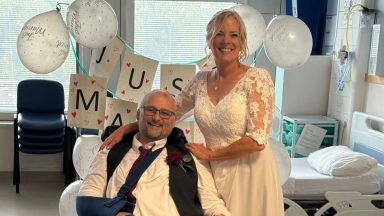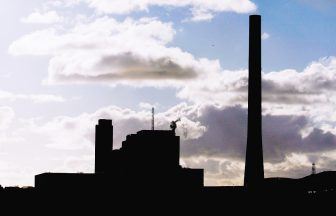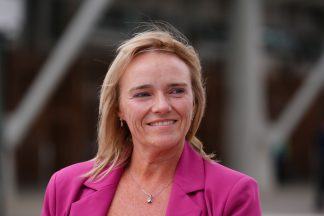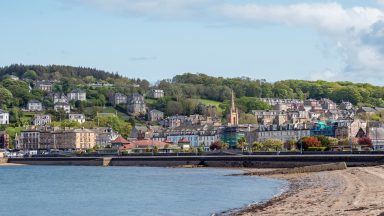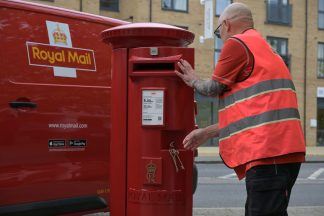Concerns have been raised about the secretive offshore ownership and financial health of some big care providers.
That’s been prompted by elderly residents in care homes accounting for almost half of Scotland’s coronavirus deaths.
Any future inquiry is likely to focus on a lack of personal protective equipment (PPE), failure to test staff and residents and why some were sent into homes from hospitals without being tested.
But the crisis has led to calls for Scotland to “clean up the care sector” with a transparency law that would force operators to bring their business structures back into the UK.
Scotland has around 1100 residential care homes containing close to 38,000 residents. Many of the large providers send their fees – paid by residents, the NHS and councils – offshore to places such as the Cayman Islands.
Financial experts say these complex structures are used to extract “hidden profit” in the form of inflated property rents, debt repayments and management fees to companies with the same ownership.
As part of an STV News special report, Scottish Labour health spokeswoman Monica Lennon said: “What these offshore structures are set up to do is to leak profit away from reinvestment in frontline care.
“There’s certainly a growing consensus that we have to clean up the care sector and, in my view, that means putting a stop to these offshore structures which breed secrecy and certainly don’t put the needs of the care home residents and staff first.”
It’s estimated around £1.5bn of “leakage” is lost from frontline care across the UK and that many big firms are at risk of collapse due to high levels of debt — putting residents at risk.
The Centre of Health and the Public Interest (CHPI) last year forensically examined the accounts of hundreds of companies and concluded “the care home sector is in crisis”.
The think tank found that around £7 of £100 income for small and medium-sized care companies goes towards profits. For the largest operators, it is around £15 per £100.
Their report states: “The current financial structure of many of the largest providers hinders public accountability and hides the true extent of profits being made at the expense of frontline care.
“For anyone purchasing care home services, it is currently impossible to know how much of it goes on frontline care and how much of it leaks out to investors.”
Some companies have so much debt they’re at risk of collapse, potentially causing “unnecessary risk of harm” to residents.
CHPI report author Vivek Kotecha told STV News that Covid-19 “has exposed the weakness in an essential service such as this”.
He added: “The key overarching point is that the financial structure of the care home industry, the way it’s been set up, means that some parts of the industry are very vulnerable to collapse.
“In an essential public service we don’t necessarily want to be reliant on these fragile and vulnerable businesses that we can’t understand and we don’t know where they’re spending their money or whether we’re getting good value for money or not.”
Scotland’s coronavirus death toll has now passed 4000. National Records of Scotland say that as of June 7 there were 1861 suspected or confirmed Covid-19 deaths in care homes — slightly more than the 1854 in hospitals.
Among the hardest hit is HC-One — the UK’s biggest private provider of residential elderly care. As of June 11, the company recorded 222 deaths of residents in Scotland.
They include nine at Tranent Care Home, East Lothian; 12 at Castle View, Dumbarton; ten at Mugdock House, Bearsden; 14 at Orchard Care Home in Tullibody, Clackmannanshire and ten at Home Farm on the Isle of Skye.
Government regulators took legal action to suspend HC-One’s licence for Home Farm, citing “significant and serious concerns”. Last week it was agreed the company should continue running the home with the case returning to court on June 24.
HC-One’s HQ is in Darlington but its corporate structure comprises a complex web of interlinked companies based in offshore in tax havens including the Cayman Islands. Some of the offshore firms are named after James Bond movie Skyfall
Councillor John Gordon’s 83-year-old dad John Angus Gordon was a Home Farm resident who died of Covid-19. He believes that “if that money was kept within the care sector, surely the resources, the conditions, the care would be a lot better”.
He added: “Going forward we need to look at models of care and what works best but looking at the whole thing just now, have we come to a place where our elderly population, our residents in these places have just become a commodity for the rich to get richer.”
Nick Hood, a social care finance expert at Opus Restructuring, believes that private investment will always be necessary, adding: “There’s nothing wrong with profit. It’s a matter of it being open and above board and visible.”
He also thinks the Scottish Government should follow the lead of countries such as France and Denmark by outlawing offshore ownership of social care.
He told STV News: “It would be an excellent thing and it would show the way to rest of the UK to end this scandal of leakage and secrecy.
“Effectively what’s happened is the top end of this market has been financialised so we’ve got a social service being run for profit and being buried in debt.
“What you’ve ended up with are companies that are financially unsound and worse still, considering that they’re taking around half their revenue from public funds, you cannot tell what is going on because they are owned offshore, and they’ve got complex structures.”
HC-One’s most recent accounts say that Covid-19 “represents a material uncertainty that may cast significant doubt on the company’s ability to continue as a going concern”.
Mr Hood said: “Nobody could have predicted the financial damage that the virus would cause, but everything else about their fragility, their finances, is entirely self inflicted.”
HC-One said no one was available for interview and declined to issue a statement.
Dr Donald Macaskill of Scottish Care, which represents private care homes, says there are significant differences between here and the rest of the UK.
He said that around one in five of Scotland’s 725 private homes are owned by the biggest operators — a lower proportion than in the rest of the country.
In Scotland, most care is bought using public money which includes the use of strict contracts stating how much is spent feeding residents and ensures staff receive the living wage.
He said: “Our view is that if the care provider acts legally and meets the quality required, it’s not up to us to say where the company should be registered. A much greater issue in Scotland is the underfunding of care.”
A Scottish Government spokesperson said its priority is giving extra support for care homes and that they have strengthened oversight with new legislation “that ensures swiftest intervention if care home residents are being put at serious risk”.
Asked about a possible transparency law, they said: “We’ve been clear we will be considering how care home services are provided, organised, funded and regulated in Scotland.”
Follow STV News on WhatsApp
Scan the QR code on your mobile device for all the latest news from around the country






